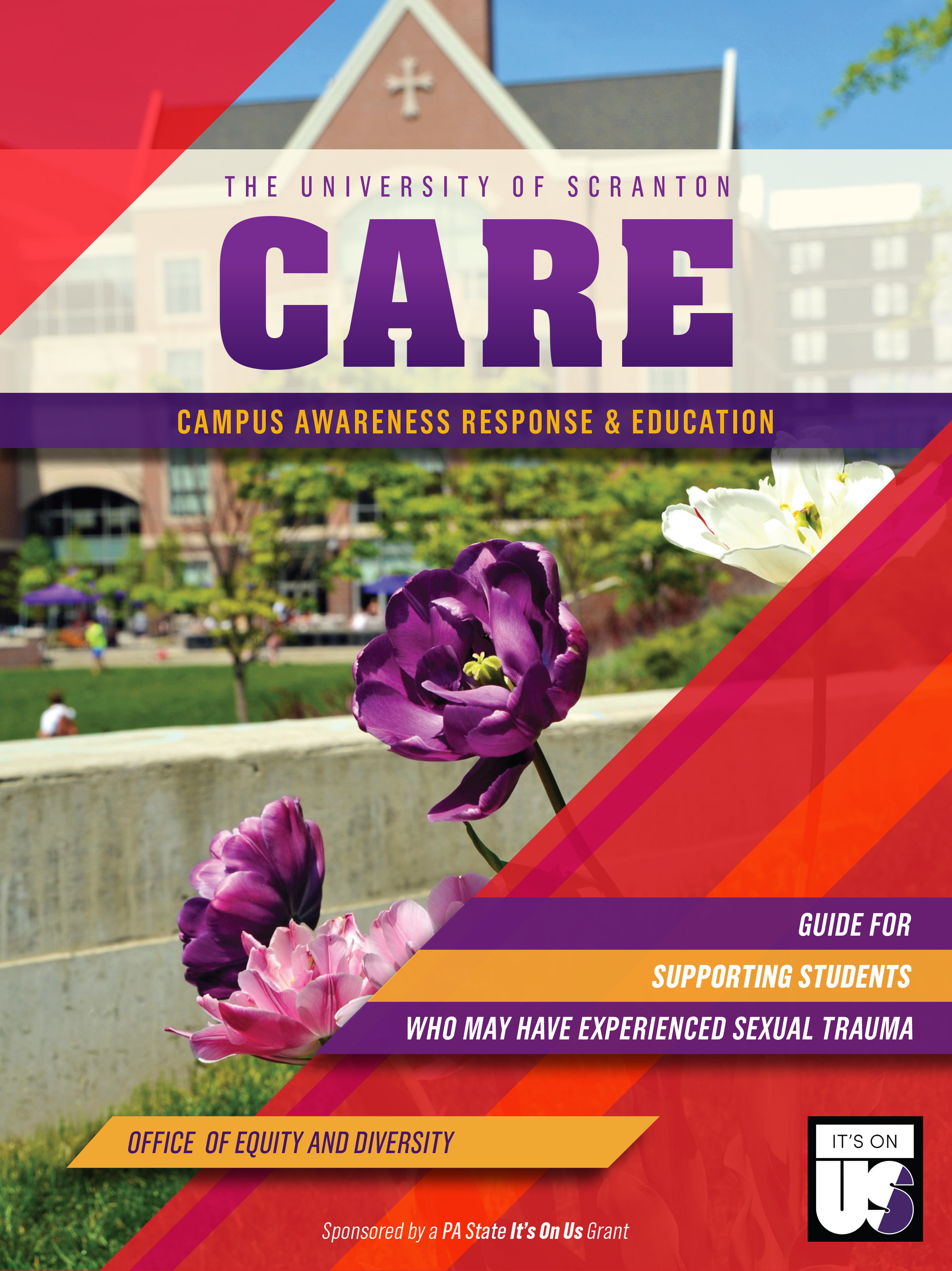Faculty Resources
Syllabi Language
All faculty are strongly encouraged to include the following language in syllabi to introduce your role as a Required Reporter and the University’s Non-Discrimination Statement.
My Reporting Obligations as a Required Reporter
As a faculty member, I am deeply invested in the well-being of each student I teach. I am here to assist you with your work in this course. Additionally, if you come to me with other non-course-related concerns, I will do my best to help. It is important for you to know that all faculty members are required to report incidents of sexual harassment or sexual misconduct involving students. This means that I cannot keep information about sexual harassment or discrimination, sexual assault, sexual exploitation, intimate partner violence or stalking confidential if you share that information with me. I will keep the information as private as I can but am required to bring it to the attention of the University’s Title IX Coordinator, Elizabeth M. Garcia, or Deputy Title IX Coordinator, Diana Collins Gilmore, who, in conversation with you, will explain available support, resources, and options. I will not report anything to anybody without first letting you know and discussing choices as to how to proceed. The University’s Counseling Center (570-941-7620) is available to you as a confidential resource; counselors (in the counseling center) do not have an obligation to report to the Title IX Coordinator.
Non-Discrimination Statement
The University is committed to providing an educational, residential, and working environment that is free from harassment and discrimination. Members of the University community, applicants for employment or admissions, guests, and visitors have the right to be free from harassment or discrimination based on race, color, creed, religion, ancestry, gender, sex, pregnancy and related conditions, sexual orientation, gender identity or expression, sex characteristics, sex stereotypes, age, disability, genetic information, national origin, ethnicity, family responsibilities, marital status, veteran or military status, citizenship status, or any other status protected by applicable law.
Students who believe they have been subject to harassment or discrimination based on any of the above class of characteristics, or experience sexual harassment, sexual misconduct or gender discrimination should contact Elizabeth M. Garcia, Title IX Coordinator, (570) 941-6645 elizabeth.garcia2@scranton.edu, or Deputy Title IX Coordinators Diana Collins Gilmore (570) 941-6645 diana.collinsgilmore@scranton.edu. The United States Department of Education’s Office for Civil Rights (OCR) enforces Title IX. Information regarding OCR may be found at https://www.ed.gov/about/ed-offices/ocr
Campus Awareness Response and Education -CARE Supporting Students Guide
 The Office of Equity and Diversity and the Jane Kopas Women’s Center are pleased to offer the Campus Awareness Response and Education (CARE) resource "Guide for Supporting Students Who have Experienced Sexual Trauma” made possible in part by a PA State It’s On Us Grant.
The Office of Equity and Diversity and the Jane Kopas Women’s Center are pleased to offer the Campus Awareness Response and Education (CARE) resource "Guide for Supporting Students Who have Experienced Sexual Trauma” made possible in part by a PA State It’s On Us Grant.
This guide provides information about challenges students who have experienced sexual assault face, offers ideas for how to support both self-identified and students who may not disclose their experiences, and reporting responsibilities. Research show us that “[c]ritical to understanding trauma is knowing that there isn’t one singular way that people will experience something. A similar experience can happen to different people, and based on a series of factors related to their lived context, they may experience the event differently. This is normal — there is no “right” or “wrong” way to experience trauma.” This Guide can assist in learning how to support students who have experienced sexual misconduct or sexual trauma in their life time. It can also be used as a quick reference in instances where a student discloses sexual misconduct or sexual trauma, especially if you are someone that is not regularly working with students who report.
Printed folders are available in the Office of Equity and Diversity. You can request a printed CARE Guide by clicking here.
Religious Observance Policy: Students
Policy Statement: The University of Scranton proudly acknowledges its Roman Catholic and Jesuit core values, and we are committed to a policy of reasonable accommodation of religious practices essential to other religious traditions. We celebrate the fact that we and our students come from diverse traditions, and we consider this fostering of an atmosphere of interreligious acceptance to be an important expression of our core values. We recognize that occasional conflicts in academic scheduling may arise, and we are committed to working with
devout students to meet their religious needs. To this end, we ask any student who intends to participate in an essential religious practice that conflicts with an element of a course's academic work to inform their professor at the start of the semester. The student should also propose a means by which they intend to satisfy the required coursework. We will do our best to find a solution.





